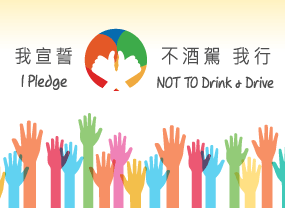The Taiwan Beverage Alcohol Forum believes that parents play a vital role in making sure that young people make responsible choices when they reach legal drinking age. TBAF also believes that providing accurate information about alcohol and alcohol education supports the responsible parent in guiding young people in the choices they make. The following information should be regarded as a general guide for parents who would like information on talking to their children about alcohol. The guide may also prove useful for teachers and others with responsibility for young people.
General Guideline
Physically and psychologically teenagers are developing young adults, and excessive consumption of alcohol during this development phase may have negative consequences over and above those experienced by fully grown adults. Apart from the physical consequences young people may not be equipped to deal with the emotional and psychological effects of alcohol abuse. Research carried out by the National Center on Addiction and Substance Abuse at Columbia University indicates that teenagers who begin drinking heavily at the age of 15 or younger are four times more likely to become an alcoholic than those who abstain. It is vital, therefore, that teenagers/adolescents are provided with proper advice on the subject of alcohol and the effects of alcohol misuse within the family, in school and in society in general.

Learning how to behave responsibly in a society where alcohol plays a part in celebration and social occasions is an important part of growing up for young people. Educational programs therefore have a role in providing young people with the necessary skills to make adult decisions about alcohol. It is important that adults not only talk to young people about alcohol but also listen, in order to address any issues that may arise from the young person's perceptions of alcohol. It is important to establish facts about alcohol and rules on consumption that the young person can understand, as well as preparing them for situations where they may be encouraged to drink by equipping them with the means to say 'no'.
Under the terms of the Young People's Welfare Law, the purchase and consumption of alcohol by people under the age of 18 is prohibited. There are opportunities to discuss the reason for such a prohibition, for example when watching TV or during a movie where consumption is shown. Much of the advice available from educational literature stresses that it is important to think about how to express your beliefs and opinions about drinking before the conversation, for example what do you feel is appropriate concerning drinking, and what is not appropriate? Another useful piece of advice is that if the young person concerned breaks a rule about drinking it is best to try not to lose your temper while the young person is not in the best frame of mind to accept what you are saying.
While it is accepted that excessive consumption of alcohol on a regular basis can lead to health problems for the individual and for society as a whole, we emphasis that consumption of alcohol beverage is an adult experience, a choice made by adults. Educating your child why alcohol at a young age may be bad for them may well prevent them from coming into conflict with the law and from risking their health.
FAQs:
-
Q: Why are parents allowed to drink alcohol when teenagers are not
A: The purchase and consumption of alcohol while under the age of 18 is illegal under the Young People's Welfare Law of Taiwan. Equally, teenagers are not fully developed adults, and are not equipped as well as adults to deal with alcohol either physically or emotionally, or with the various adult issues around alcohol consumption. -
Q: Why can't teenagers drink low alcohol strength beverages, so long as they don't get drunk?
A: The number of units consumed and relative serving-size of drinks certainly contribute to the effect of alcohol on the body. Alcohol may not only affect the metabolism of younger people but also their judgment. Under the influence of alcohol, teenagers have less experience in mature judgement and are not as well equipped to make responsible decisions. Remember, people should not drink before driving, operating mechanical equipment, during pregnancy, while taking medication or working at heights and adults are better equipped to understand the common sense application of these rules. -
Q: Won't a teenager feel left out if their friends are drinking at a party?
A: The consumption of alcohol is a personal choice. Adults, for example, may choose not to drink for specific reasons and they take responsibility for their decisions. They will have planned how they will get home, depending on their choice, and they are mature enough to know that they do not have to consume alcohol to enjoy the company of their friends. It is not essential to drink alcohol in order to enjoy a party. -
Q: But won't the teenager feel foolish if they refuse to drink?
A: No one has to drink if they do not want to. The teenager can explain that they would prefer not to have an argument with their parents, or they can say that they prefer to join in an activity where judgment and reaction is required. If the teenager is made to feel uncomfortable they should also be comfortable in the knowledge that it would be a mature decision to ask their parents to collect them from the party. -
Q: How should a parent react if a teenager asks for an alcoholic beverage at home or at a party?
A: Parents may take the opportunity to explain that it is illegal to serve alcohol to anyone who is under legal drinking age. This can be viewed as an opportunity to discuss alcohol issues in general and to promote a mature attitude towards drinking choices when the young person does reach legal drinking age.

